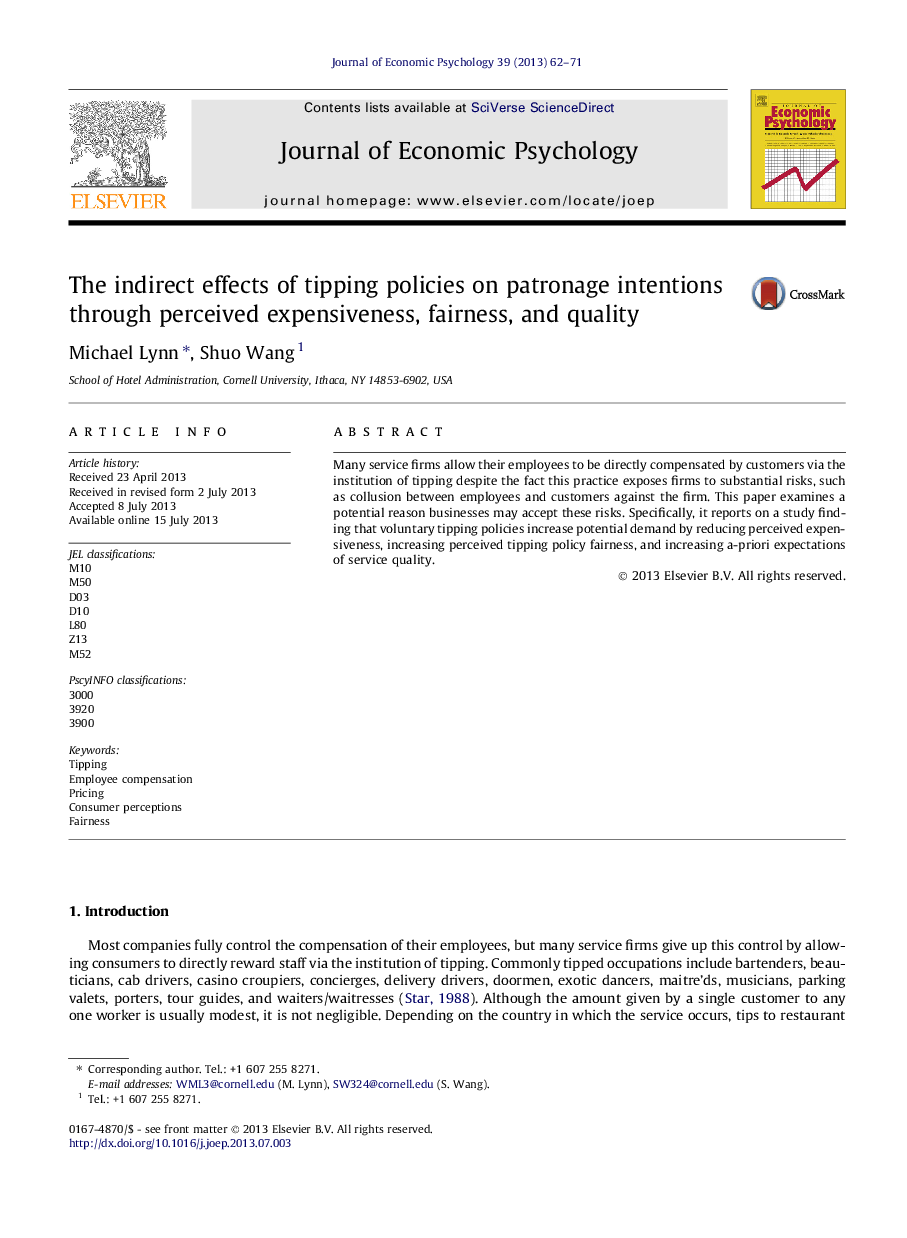| Article ID | Journal | Published Year | Pages | File Type |
|---|---|---|---|---|
| 7244914 | Journal of Economic Psychology | 2013 | 10 Pages |
Abstract
Many service firms allow their employees to be directly compensated by customers via the institution of tipping despite the fact this practice exposes firms to substantial risks, such as collusion between employees and customers against the firm. This paper examines a potential reason businesses may accept these risks. Specifically, it reports on a study finding that voluntary tipping policies increase potential demand by reducing perceived expensiveness, increasing perceived tipping policy fairness, and increasing a-priori expectations of service quality.
Keywords
Related Topics
Social Sciences and Humanities
Business, Management and Accounting
Marketing
Authors
Michael Lynn, Shuo Wang,
